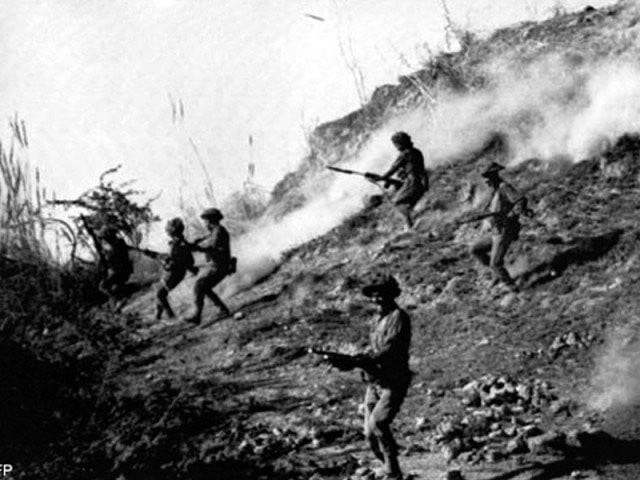'Truth must be told about 1971 genocide of Bengalis'
Speakers praise author at the launch of 'Tormented Truth 1971 and Beyond", highlighting history's distortion

It's imperative to get rid of the myth of genocide of three million Bengalis by Pakistan Army in 1971, said Group Captain (retd) SM Hali, Sitara-e-Imtiaz (Military) while shedding light on the launch of the book “Tormented Truth 1971 and Beyond...” of which he is the author, at the Institute of Strategic Studies Islamabad (ISSI) on Tuesday.
The event was attended by diplomats, dignitaries, scholars, students, journalists, and people from all walks of life. Director-General ISSI Ambassador Aizaz Ahmad Chaudhry welcomed the chief guest, General (retd) Ehsan-ul-Haq, Nishan-e-Imtiaz (Military), distinguished audience and participants.
Hali observed that the myth was part of Bangladeshi syllabus, adding "truth must be told to the world”.
"We acknowledge that Bangladesh is a reality, and it has been thriving," the author said. "We Pakistanis are proud of their success but still, truth must be told as the old wounds are opened every few years."
Shedding light on the book's contents, he said it details the facts behind the dismemberment of Pakistan in 1971.
Hali concluded his remarks by inviting both the sides to move forward with the message of friendship.
The DG ISSI expressed his utmost delight at the coverage of a rather neglected subject in the history of Pakistan, and congratulated the author for the effort.
Also read: Bangladeshi, Pakistani leaders to promote ties for mutual benefits
He recalled his teenage years when the unfortunate event of 1971 happened and said it was a tormented history in which leadership of the time shared a responsibility.
"Their actions provided India the opportunity to dismember Pakistan," Chaudhry said, condemning the illegal and immoral Indian intervention in Pakistan’s internal affairs.
Speaking on the occasion, Director ISSI Dr Saif-ur-Rehman Malik lauded the author and highlighted that the institute, under the guidance of its DG, has so far conducted 16 major events involving national and international speakers.
More recently, he added, it produced a book titled: “India’s Relations with Neighbours: Cooperation or Confrontation?”, covering India’s foreign relations with its neighbours.
Expressing his views, Senator Javed Jabbar asked as to why would truth be associated with torment as it was supposed to be beautiful and supreme, revealing everything.
He added that truth can be a source of great pain and it, sometimes, cannot be born. "Sometimes, the truth is distorted as it has been since 1971, adding 1971 will remain a source of disturbing memory.
"Hali has made an extensively researched effort and added further literature to the subject," he said.
Jabbar noted that the creation of Bangladesh did not reject the reality of Muslim nationalism in South Asia. Even the Article 2A of Bangladesh Constitution said that the state religion will remain Islam.
Also read: Thaw in Pakistan, Bangladesh relations?
Ambassador Salahuddin Chaudhry said that being a person of Bengali origin, he followed the advice of his father (Vice Chancellor International Islamic University) to stay in Rawalpindi.
He shared his personal memories of Hindu Bengalis and people of India tormenting the people of East Pakistan, especially those who had a patriotic view of Pakistan. He praised the author for his labourious research and worthy analysis.
Shedding light on the subject, Air Vice Marshal (retd) Zubair Alam, Hilal-e-Imtiaz (Military), said he was a member of the team who wrote the official history of the Pakistan Air Force, called the “The Story of the PAF”.
He further said he took part in the 1971 Indo-Pak War when he flew C-130 transport aircraft in combat support and airfield assault operations. Prior to that, he also took part in the flood relief operations in 1970 by flying from West to East Pakistan.
Alam lamented that continental transport was rendered impossible by the militants and the miscreants of Mukti Bahini, trained and supported by India.
General (retd) Ehsan-ul-Haq made a glowing ovation and congratulated the author for such a wonderful scholarship of unbiased and objective literature.
"We should adopt the policy of forgetting and forgiving," Haq said and urged that the people of Pakistan to move ahead by learning from the past mistakes.



















COMMENTS
Comments are moderated and generally will be posted if they are on-topic and not abusive.
For more information, please see our Comments FAQ